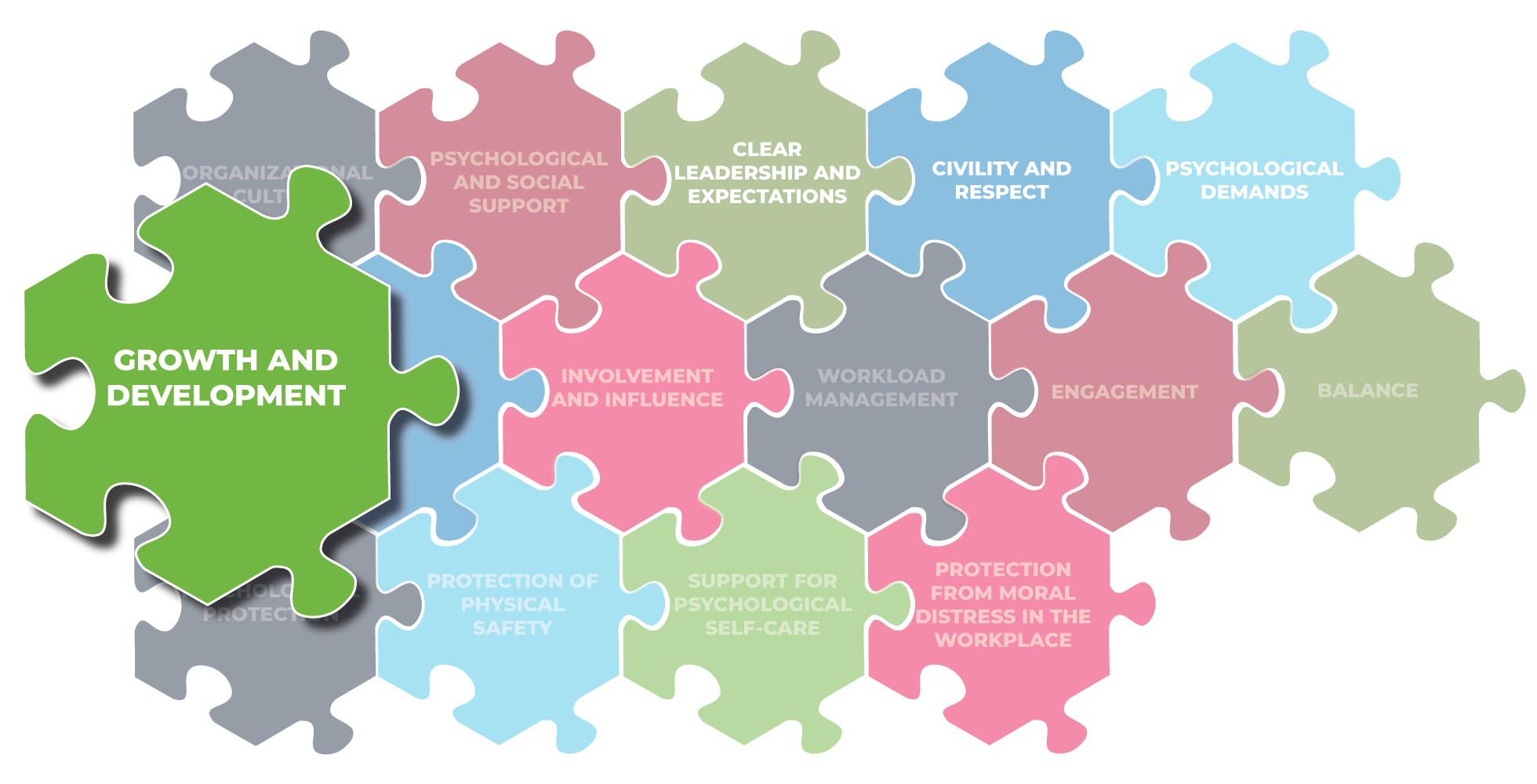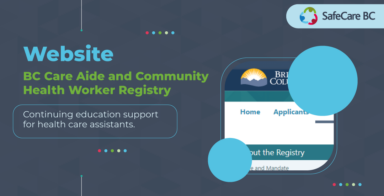Growth and development refer to an organization's opportunities for employees to enhance their knowledge, skills, and abilities. It involves supporting and fostering professional growth, continuous learning, and career development within the workplace.
At their core, growth and development foster a culture of learning and innovation within the organization, where employees are encouraged and supported in their pursuit of excellence. This factor recognizes that employees are an organization's most valuable asset and that investing in their growth and development yields long-term benefits for both individuals and the organization as a whole.
Key themes of growth and development
- Continuous learning culture
- Professional skill enhancement
- Career advancement pathways
- Feedback and performance management
- Recognition and reward
- Diversity and inclusion
Leadership and management strategies
Leaders play a critical role in supporting employees and the organization with growth and development. Here are some unique strategies leaders can employ to foster a culture of continuous learning and professional advancement:
- Individualized development plans: Work with each employee to create personalized development plans that align with their career aspirations, strengths, and areas for growth. These plans may include specific goals, milestones, and action steps tailored to the individual's role and developmental needs.
- Job rotation and shadowing opportunities: Offer job rotation programs or shadowing opportunities that expose employees to different roles, departments, or projects within the organization. This hands-on experience broadens employees' skill sets and fosters cross-functional collaboration and innovation.
- Mentorship and coaching programs: Establish formal mentorship and coaching programs that pair employees with experienced mentors or coaches who can provide guidance, feedback, and support in their professional development journey. These relationships facilitate knowledge transfer, skill development, and career guidance, fostering a culture of learning and growth.
- Internal knowledge-sharing platforms: Implement internal knowledge-sharing platforms, such as intranet forums, wikis, or lunch-and-learn sessions, where employees can share insights, best practices, and lessons learned from their experiences. This promotes a culture of continuous learning and knowledge exchange across the organization.
- Professional development budgets: Provide employees with dedicated budgets or stipends for professional development activities, such as attending conferences, enrolling in courses, or obtaining certifications relevant to their roles. Empowering employees to invest in their growth demonstrates the organization's commitment to professional advancement.
- Feedback and recognition: Regularly provide feedback and recognition to employees for their efforts and achievements in pursuing growth and development opportunities. Acknowledge their progress, celebrate milestones, and highlight examples of exemplary learning and skill development to reinforce a culture that values continuous improvement.
Frontline Worker Strategy
Frontline workers play a crucial role in organizations and can actively pursue growth and development opportunities. Here are some unique strategies frontline workers can implement to enhance their professional skills and advance their careers:
- Job shadowing and cross-training: Seek opportunities to shadow colleagues in different departments or roles to gain exposure to new tasks, processes, and perspectives. Cross-training allows frontline workers to develop a broader skill set, increase their versatility, and explore potential career paths within the organization.
- Peer learning circles: Form peer learning circles or study groups with fellow frontline workers to collaborate on learning initiatives, share knowledge, and support each other's professional development goals. These informal networks provide a platform for mutual learning, feedback, and skill enhancement.
- Online learning platforms: Use online learning platforms and resources to access various courses, tutorials, and educational materials relevant to your role and career interests. Many platforms offer flexible, self-paced learning options that allow frontline workers to enhance their skills independently.
- Attend industry events and conferences: Attend industry conferences, workshops, seminars, or networking events to stay informed about industry trends, best practices, and emerging technologies. These events provide opportunities to expand your knowledge, build professional connections, and gain inspiration for future growth.
Check with your association or college if they have development grants. They may have subsidized or free courses.
The significance of employee development: Investing in employee development is critical for several reasons:
- Increases commitment: It boosts goal commitment and organizational loyalty.
- Enhances job satisfaction: Employees feel valued when their growth and development are supported.
- Improves well-being: Skill acquisition and career development are key to enhancing employee well-being.
- Broad skillset development: Opportunities must extend beyond technical skills to include personal and interpersonal skills, vital for self-care and effective interaction with others.
Consequences of inadequate development opportunities: A lack of development opportunities can lead to several negative outcomes:
- Employees may become disinterested and bored, leading to a decline in their well-being and job performance.
- Employees might face conflicts, disengagement, and distress without the chance to improve interpersonal and psychological skills.










